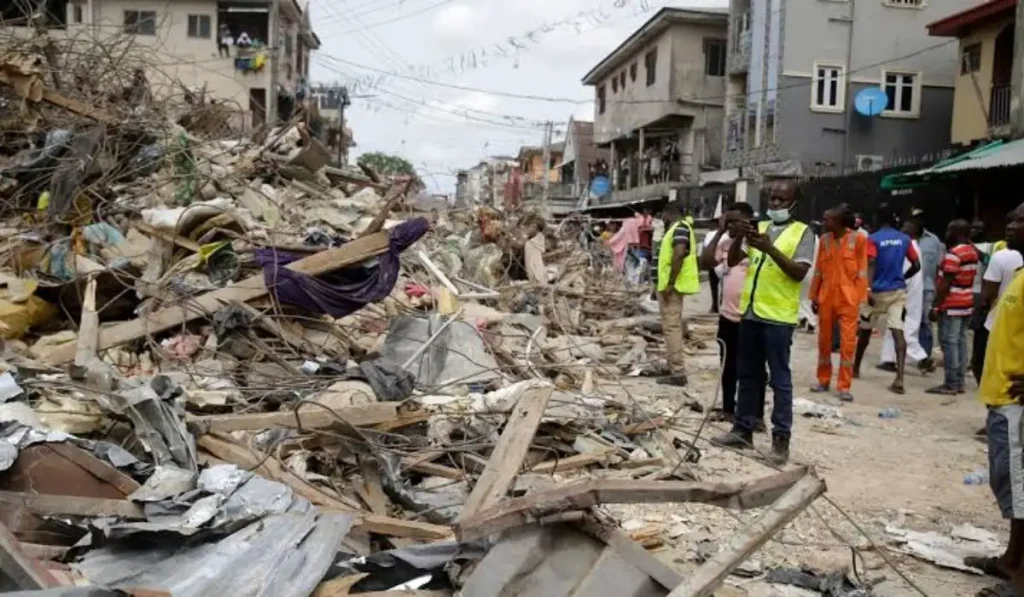A devastating collapse of a three-storey building in Lagos’ Ebute Metta area has claimed 10 lives, according to the National Emergency Management Agency (NEMA). The incident, which occurred late Sunday night at 24 Ibadan Street, Herbert Macaulay Way, has left the community reeling as rescue operations persist to save those still trapped beneath the debris.
Ibrahim Farinloye, NEMA’s South-West Zonal Coordinator, confirmed the updated death toll to the News Agency of Nigeria (NAN). Among the victims were a four-year-old boy and a female youth corps member, bringing the total fatalities to six males and four females. Rescue teams have so far saved 23 occupants, but the ongoing efforts underscore the urgency of finding any remaining survivors. The collapse, reported at approximately 10:56 p.m., has raised fresh concerns about building safety in Lagos, a city grappling with frequent structural failures.
The incident highlights a recurring issue in Nigeria’s commercial capital, where rapid urbanization and lax enforcement of building regulations often lead to catastrophic consequences. Ebute Metta, a densely populated area, is no stranger to such tragedies, with aging infrastructure and substandard construction practices contributing to the risks. Rescue operations, involving NEMA and other emergency response teams, are working tirelessly to navigate the rubble and provide aid to those affected.
This tragedy follows a pattern of building collapses in Lagos, with similar incidents claiming lives and prompting calls for stricter oversight. Authorities have yet to release details on the cause of the collapse, but investigations are expected to focus on structural integrity, construction materials, and compliance with safety standards. The loss of young lives, including a child and a youth corps member, has intensified public outcry for accountability and preventive measures.
NEMA’s ongoing efforts reflect the challenges of responding to such disasters in a bustling metropolis. The agency has urged residents to stay clear of the site to facilitate rescue operations and ensure the safety of responders. As the community mourns, attention is turning to the broader issue of urban planning and the need for robust policies to protect residents from preventable disasters.
The Lagos State government has faced criticism for its handling of building safety, with advocates calling for regular inspections, enforcement of codes, and penalties for non-compliant developers. This incident serves as a stark reminder of the human cost of inaction and the urgent need for systemic reforms to safeguard lives in one of Africa’s largest cities.






